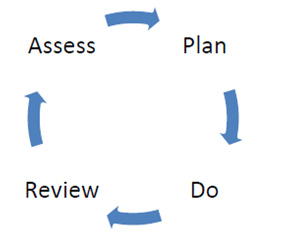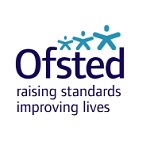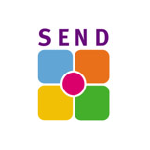Special Educational Needs and Disabilities (SEND)
Bluebell Children’s Nurseries SEN and Disability Information
How does the pre-school/ nursery know if children need extra help and what should I do if I think my child has special educational needs?
When your child first joins the setting we encourage you to discuss any areas of concern with us at the earliest opportunity. We would identify children with special educational needs through observation and children’s assessments, using the Early Years Foundation Stage Curriculum (EYFS) as a guide. The staff are fully trained and able to identify where children may need some support. If you have any concerns about your child’s progress, you can raise these concerns and get advice from the key person, manager and the SENCO. The nursery has an open door policy so you can come and speak to us at any time. Your child’s key person will give regular feedback and communicate with you each time your child is in the nursery. The nursery has a SEND policy in place that all staff and parents are made familiar with when joining the setting. We have good connections with the Early Years team who can provide advice and guidance to the setting and parents. We will do our best to cater for all special educational needs, seeking appropriate training for staff, to enable them to meet your child’s needs. We have accommodated many children’s needs since we have been open.
How will the pre-school/ nursery support my child with special educational needs?
Babies and young children are individuals first, each with a unique profile of abilities. At the nursery we ensure routines should flow with the child’s needs. All planning starts with observing children first in order to understand and consider their current interests, development and learning. These observation allow the key person to assess and plan for the individual child and then analyse, and use what you have found out about the child so that we can plan for the next steps in their learning. (the diagram below demonstrates this learning cycle) The trained SENCO and the manager will oversee the education of any children with SEND and ensure our inclusion policy is adhered to. A key person will be assigned to the child and carry out the day to day care of the child as well as support the learning and development of the child; they will be working with the child on a daily basis. A secondary key person called a co-key person will also be allocated in the event of the primary person being on annual leave or off sick for any reason. The role of the key person is to carry out observations, liaise with the parents each time the child is in, and plan for the child and support targets on the child’s Individual Educational Plan. In addition to this, the manager and SENCO will liaise when necessary and encourage you as parents to participate in meetings along with other professionals that are involved and have contact with your child. We are pro-active in seeking staff relevant training that will help us to meet the individual needs of children. We find that having regular communication between the setting, parents and other agencies means we can effectively accommodate children with Special Educational Needs and help them develop and make the best possible progress they can.

How is the decision made about what type and how much support my child/young person will receive?
We are committed to ensuring that all children are able to access our services, made to feel welcome, and that our activities promote their welfare and development. We look at each child’s individual needs and adapt activities accordingly making them accessible and inclusive to make the child feel included in the group. We will put an Individual Education Plan (IEP) in place for your child, so that the key person can facilitate your child’s development, helping your child to achieve and learn. Explain how you allocate resources. We liaise and involve the Early Years’ Service and apply for additional funds if necessary based on the child’s needs to support the child’s learning and development and help close the gap.
How will the pre-school/ nursery review my child’s progress and how shall they share it with me?
We recognise that parents hold key information and play a critical role in their child’s education. Therefore we understand the importance of their contribution, views and feelings with regards to their child’s development. We endeavour to support both the child and the parents and will aim to include parents at all stages of the planning and assessment process, offering support and guidance and arranging time for the parent/s to discuss their child’s progress. Any outside agencies that are involved in supporting the child’s learning and development will also be included. We have an open door policy,
we will listen to parent’s views, taking into account their knowledge and experiences; allow parents to access their child’s records/IEP at any time and encouraging them to also be working on the same targets at home, giving you guidance on how to do this. We will also ensure that parents are aware of local services. A communication diary can be provided for the carer and the key person to have regular communication. The parents will be given the opportunity to contribute with new targets when it comes to changing the targets for the IEP. Training for the parents can be sourced to help give them a better understanding and guidance on their child’s needs.What support will there be for my child’s overall well-being?
Any child within our setting will receive the daily high standard of care that we give all children. We are able train the key person in administering any medication your child is currently on and we are flexible in meeting daily care needs such as feeding, changing, toileting etc. We will also provide any additional care that is needed to meet the individual needs of children with Special Educational or specific care needs on a daily basis. Children with SEND are able to contribute their views in a number of ways, including having a voice and using visual timetables, signs and symbols to help children communicate with others. Our staff are fully trained and staff will willingly attend specific training if required to enable them to meet any child’s specific needs. We have good contacts with local services which can help support parents and children socially, such as attending particular groups or meetings relevant to individual children. We have a behaviour management policy in place which identifies behaviour management strategies. Children with SEND will not be excluded from the setting under any circumstances and attendance is monitored and discussed with the the parents if necessary.
What training do the staff have in supporting children with special educational needs or disabilities?
We have at least one member of staff trained and experienced as a SENCO and who regularly attends SENCO Support meetings and Inclusion update meetings. The staff that are chosen to work with children with SEND will be best suited in experience and knowledge. They will be qualified, paediatric first aid trained and have a sound knowledge of children’s development. Many of our staff have undergone Makaton training and use it on a daily basis within the classroom. Most of our staff have also had Autism training and Behaviour Management training. We actively promote new training sessions and will seek out training in any specific areas that are required using ESCC online training portal. Staff are regularly observed by members of management, and regular general and Senco supervisions are carried out with staff. We allocate training based on the needs of the children as well as looking at individuals continuous professional development (CPD)
What specialist services and support are available to the pre-school/nursery?
We believe that a strong multi-agency approach is the most effective way to support a child or young person with SEND. This is why we work closely with experienced professionals such as the Speech and Language Therapy team, Family Support Service, and Physiotherapists amongst others. We encourage outside agencies to come into the setting and observe the child interacting within the nursery setting, which contributes towards children’s targets, we also attend all key worker meetings with all agencies involved in the child’s learning and development.
How will my child/young person be included in activities outside the pre-school/ nursery, including trips?
Activities and school trips will be accessible for all children and we liaise with parents/carers to implement any specific arrangements that might be needed to meet the needs and safety of individuals. On occasions an additional member of staff may be assigned to support an individual child. Risk assessments are carried out regularly to help identify where additional support maybe required. We fully encourage outdoor learning for all children and we make full use of our outdoor spaces and local area. Parental consent is requested for activities outside the nursery grounds and thorough risk assessments carried out before any trip and activity. Our outings policy is shared with parents on admission and parents are more than welcome to join us on outings and trips.
How accessible is the pre-school/ nursery?
Bluebell Barn is an old converted barn, spread over one level. The hallways are wide and wheelchair friendly. Each of the rooms has access to the garden through double doors, which lead to separate gated patios for each age group and a shared grass/woodchip area. There is self-contained classroom in the garden which has its own toilets, changing area and kitchen area. The nursery has a disabled toilet and changing facilities. Bluebell Barn has its own private car-park.
Bluebell Hill is spread over two floors, with a majority of the rooms on the ground floor. There is one set of stairs leading up to the baby rooms and office. These are not wheelchair accessible. There is ramp access to the toilets and ramp access to the gardens, which all have flat areas and some woodchip/grass areas. Bluebell Hill does not have its own car-park, although there is a small driveway available for parents to use at drop off and pick up times.
Bluebell Wood is spread over two floors with one set of wide shallow stairs between them. There are 3 shallow steps on entrance to the nursery, but wheelchair access can be gained into the ground floor baby room, where there is toilet/changing facilities. The first floor is not wheelchair accessible.
The garden area has flat surfaces, wood-chipped areas and a wide pathway leading to the front door. There is plenty of storage space for mobility aids. Bluebell Wood has a large car park.
All three of the nurseries have well lit, spacious and easily adaptable rooms. They all have a variety of multilingual books and music throughout the settings and activities relating to other cultures and backgrounds are strongly encouraged. We use visual aids around the settings to support SEND children and their families. Where possible we will translate any newsletters into other languages and liaise with parents whose first language is not English by using any other means possible, such as other relatives and outside agencies.
How will the pre-school/nursery help my child move on to school?
We offer settling in sessions before your child is due to start so that your child and family can get to know key staff and familiarise yourselves with the environment and routine. This also gives us a chance to discuss any specific requirements that your child or you may need. We understand that this maybe be an apprehensive time for you, as well as your child, so all of our settling in sessions are completely free of charge, and you can have as many as you feel necessary. During this time you and your child will build a relationship with an assigned Key worker and Co-key worker. We can provide visual aids of key staff and photos of key areas within the setting to support the transition into nursery life.
If your child is moving from another setting, we make visits and liaise with their current key workers to keep their routines consistent.
When the time comes for your child to go to school, we invite new teachers to come into nursery and meet with your child and keyworker. We have good links with local schools and on occasions we have visited the school with a small group of children. We also plan ‘school days’ for the children where they can dress in their new uniform and role play schools. This enables the children to begin to become familiar with school. We are always available to talk with parents and ally any concerns they may have about impending transitions.
More information, advice and support
The local offer- what is available for children and young people with special educational needs in East Sussex
www.eastsussex.gov.uk/localoffer
Information for Families (including SEN and Disability advice service)
Phone: 0345 60 80 192
Text: 07797 870317
email informationforfamilies@eastsussex.gov.ukwww.eastsussex.gov.uk/informationforfamilies
Date issued: 17th January 2017


